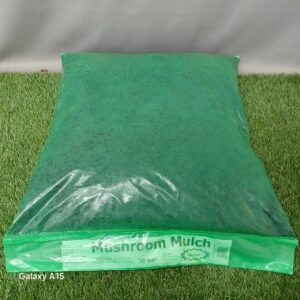Dangerous foods for pets
DIY and how-to

Surprisingly dangerous foods for pets
You share many things with your pet: your home, your time, and usually your bed. Sharing meals, however, should be avoided. Not only is it easy to overfeed your pet and cause weight gain, but some foods are highly toxic.
Listed below are common human foods and drinks that make pets sick. If you think that your pet has ingested any one of these items, please immediately contact your veterinarian
Avocados
The entire fruit, pit and plant are all toxic to birds. They can cause fluid accumulation in the chest, abdomen and heart and cause difficulty breathing.
Alcohol
Alcoholic beverages pose much the same hazard to dogs and cats as to humans. Beer is especially hazardous. Hops, the plant used to make common beer, can cause malignant hyperthermia in dogs, usually with fatal results. Certain breeds, such as Greyhounds, seem particularly sensitive to hop toxicity, but hops should be kept away from all dogs. Even small amounts of hops can trigger a potentially deadly reaction.
Chocolate
Chocolate contains theobromine. A naturally occurring stimulant found in the cocoa bean, theobromine increases urination and affects the central nervous system and the heart muscle. While amounts vary by type of chocolate (baker’s chocolate having the most), it’s the theobromine that is poisonous to dogs and cats.
Caffeine
Caffeine is potentially toxic to dogs. Like theobromine in chocolate, caffeine toxicity overstimulates the central nervous system. So keep items like soda, coffee, coffee grounds, coffee beans, and caffeinated tea out of a pet’s reach.
Fatty foods
Fatty foods are hard for dogs and cats to digest and can overtax the pancreas, leading to pancreatitis. Pancreatitis is extremely painful and potentially fatal.
Garlic and onions
Onions and garlic (raw, cooked, or powder) contain the toxic ingredient thiosulphate, which can damage red blood cells and cause hemolytic anaemia. Onion poisoning can occur after eating a large quantity of onion-laced foods or with repeated meals containing small amounts of onion. It seems that garlic is less toxic overall and larger amounts of garlic need to be eaten to cause illness.
Grapes and raisins
As far as grapes and raisins go, no one knows why they’re harmful. It’s been confirmed that even grapes grown without fertilizers or pesticides can be toxic to dogs and cats. It’s also unknown whether small amounts eaten over a long period could have a cumulative effect. What we do know is that the result in nearly all reported cases of grape or raisin toxicity is acute kidney failure. The dog or cat ultimately can’t produce urine. This means they can’t filter toxins out of their systems, a process essential to life.
Macadamia nuts
Macadamia nuts should be avoided. In fact, most nuts are not good for a pet’s health since their high phosphorus content is said to lead to bladder stones.
Milk
Because pets do not possess significant amounts of lactase (the enzyme that breaks down lactose in milk), milk and other milk-based products cause diarrhea or other digestive upset.
Pear pits, the kernels of plums, peaches and apricots, and apple core pits
All contain cyanogenic glycosides, resulting in cyanide poisoning in your dog or cat.
Potatoes that are green or potato sprouts
These contain solanine glycosides, which can cause vomiting, abdominal pain, bloody diarrhea, depression, trembling, paralysis and cardiac arrest.
Raw meat and eggs
Raw eggs and raw meat can cause the same problems to cats and dogs as they would to you. Raw food can always be contaminated with Salmonella and/or E. Coli. Pets that eat raw meat can easily spread bacteria to you, to children, and even to the entire neighbourhood if your pet eliminates outdoors.
In addition, raw eggs contain an enzyme called avidin that decreases the absorption of biotin (a B vitamin), which can lead to skin and coat problems. Chewing raw bones would be natural if your pet lived in the wild. However, this can be very dangerous for a domestic pet that could choke on bones. Serious injury will occur should the bone splinter and become lodged in or puncture your pet’s digestive tract.
Raw yeast/bread dough
Raw dough can form gas in the digestive tract. The fermentation of the yeast causes alcohol poisoning. It also causes pain and can potentially rupture the stomach and intestines as it expands.
Salt
Large amounts of salt can produce excessive thirst and urination and even sodium ion poisoning in pets. Don’t share those salty chips.
Tomatoes
Tomatoes contain toxins known to cause dilated pupils, tremors and irregular heartbeat. The leaves and stems of tomato plants are the most toxic, followed by unripe tomatoes and ripe tomatoes.
Xylitol
Xylitol is a sweetener in many products, especially sugarless gum and candies. Ingesting large amounts of products sweetened with xylitol may cause a sudden drop in blood sugar in dogs, resulting in depression, loss of coordination, and seizures in both dogs and cats.
You might also like
Shop online
-
HAMSTER WHEEL
- R79.99
- Add to cart Learn More
-
LOUNGER POD 92X68.5X87CM
- R1,764.99
- Add to cart Learn More
-
2 SEATER POD LOUNGER STRING
- R3,779.99
- Select options This product has multiple variants. The options may be chosen on the product page Learn More




